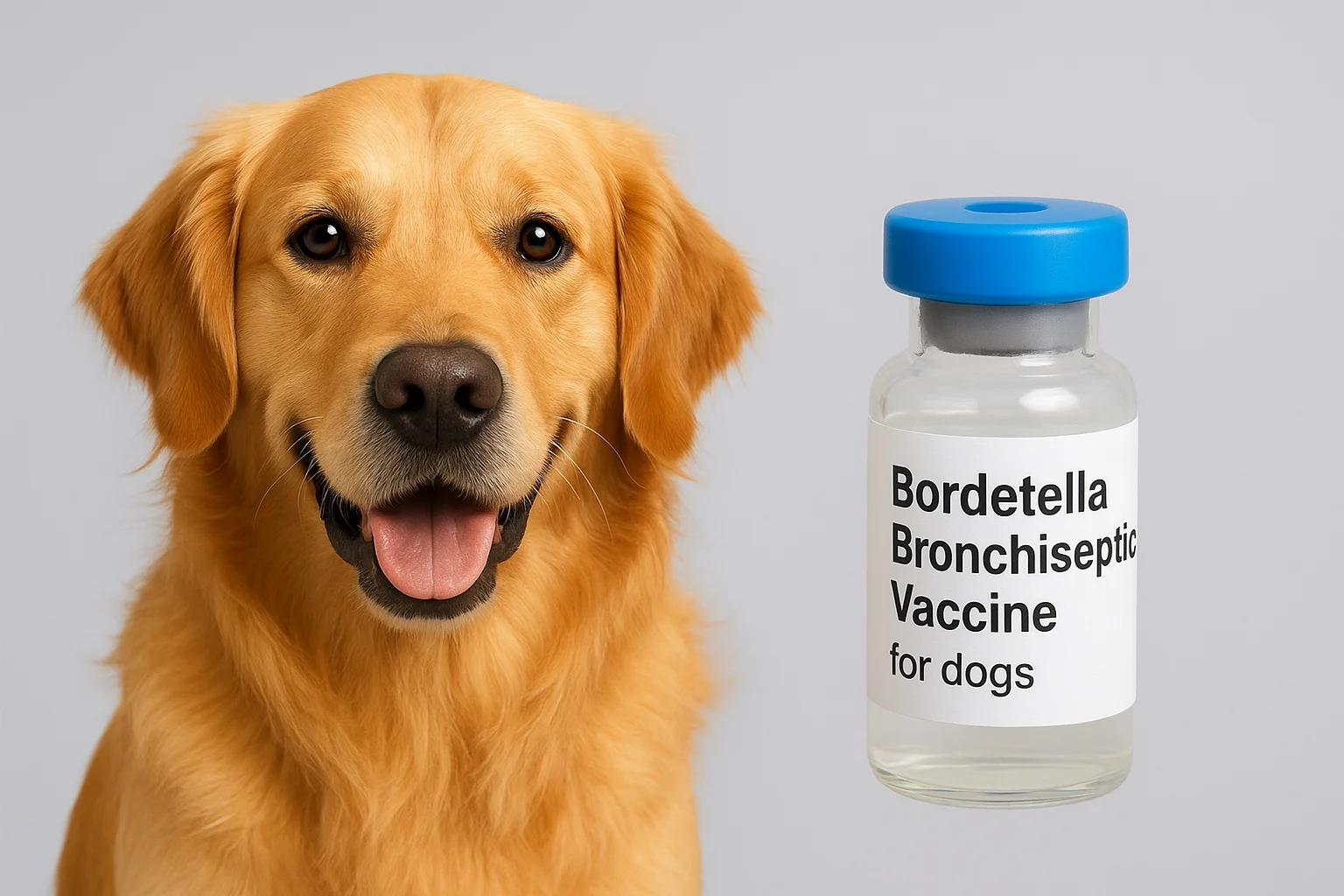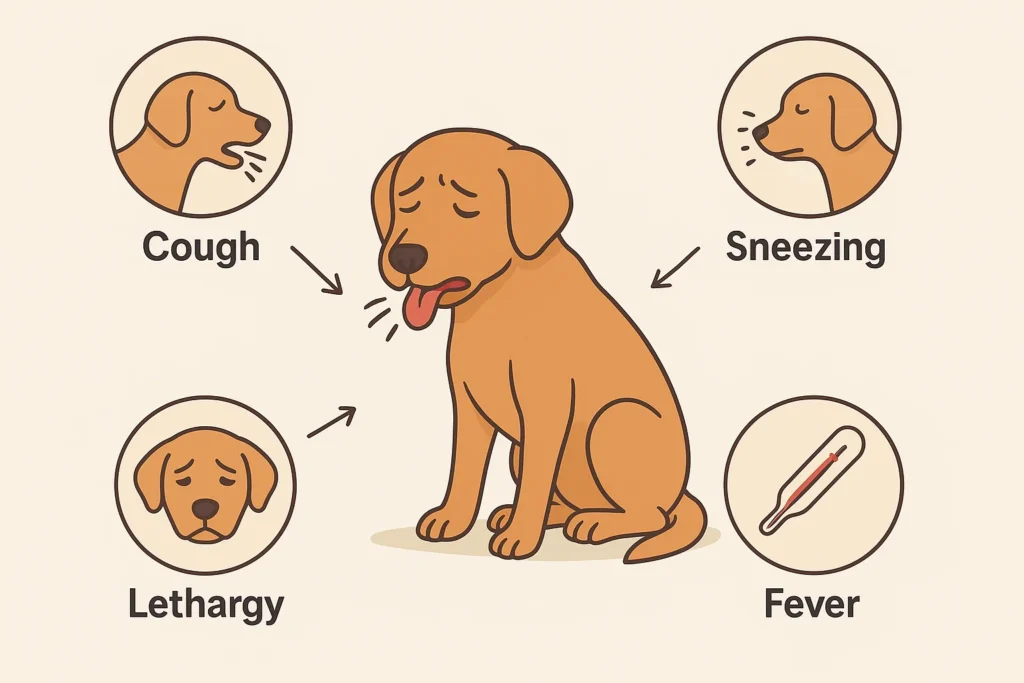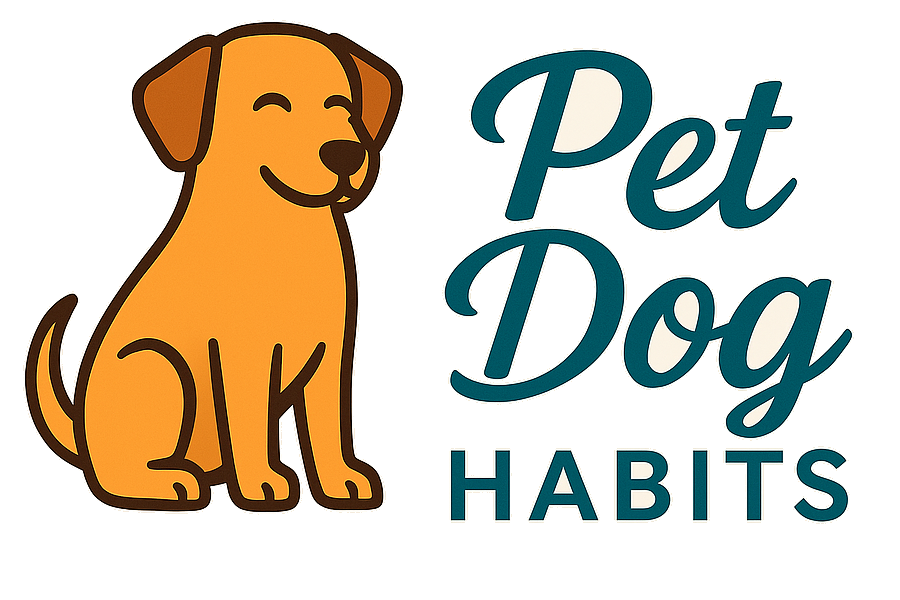Bordetella Vaccine for Dogs: Complete Vet-Approved Guide

Suppose you’ve come across the term Bordetella vaccine for dogs, a key preventive measure against kennel cough in dogs. Whether you’re a first-time dog owner or a seasoned pet parent, understanding this vaccine can help you keep your dog healthy and protect other dogs in your community.
In this guide from Pet Dog Habits, you’ll learn:
- What is the Bordetella vaccine?
- How kennel cough spreads and the role of the vaccine
- Types of vaccines available and how they’re administered
- Recommended schedules and booster frequency
- Benefits, limitations, and side effects
- Answers to the most common dog owner questions
What Is the Bordetella Vaccine?
The Bordetella vaccine protects dogs against Bordetella bronchiseptica, one of the most common bacterial causes of canine infectious respiratory disease complex (CIRDC), commonly known as kennel cough.
What Is Kennel Cough?
Kennel cough is a highly contagious respiratory infection in dogs, especially common where dogs gather—boarding facilities, dog parks, grooming salons, and training classes. It’s caused by multiple pathogens, but Bordetella bronchiseptica is the most frequent culprit.
Symptoms include:

- Persistent, dry hacking cough
- Gagging or retching
- Nasal discharge
- Mild fever
- Lethargy
While kennel cough is usually mild, it can become serious for puppies, senior dogs, or dogs with weak immune systems.
Learn more from the American Veterinary Medical Association (AVMA).
Who Should Get the Bordetella Vaccine?
Your vet may recommend this vaccine if your dog:
- Attends doggy daycare or group training
- Stays in boarding kennels
- Visits dog parks frequently
- Participates in dog shows or competitions
- Lives in multi-dog households
Some grooming salons and boarding facilities require proof of Bordetella vaccination before accepting your dog.
Types of Bordetella Vaccines
There are three main forms of Bordetella vaccination:
| Type | How Given | Onset of Protection | Booster Needed | Pros | Cons |
| Intranasal | Drops into nostril | 3–5 days | Yearly or biannually | Fast protection; good local immunity | Some dogs dislike administration |
| Oral | By mouth | 3–5 days | Yearly or biannually | Easy to give; minimal discomfort | Availability varies |
| Injectable | Under the skin | 7–10 days | Drops into the nostril | Familiar method; long-lasting | Drops into the nostril |
Vaccination Schedule & Frequency
- Puppies: First dose at 6–8 weeks, booster in 2–4 weeks.
- Adults (unvaccinated): tangle dose, booster as recommended by vet.
- High-risk dogs: Boosters every 6 months instead of annually.
Always follow your veterinarian’s tailored schedule—factors like lifestyle, travel, and health status matter.
Benefits of the Bordetella Vaccine
- Reduces the risk of contracting kennel cough
- Lessens the severity and duration of illness if infected
- Helps protect other dogs in the community
- Often required for social and boarding settings
Limitations
- Doesn’t protect against all kennel cough pathogens (e.g., canine parainfluenza, adenovirus).
- Not 100% effective—breakthrough infections can occur.
- Immunity duration may vary by dog and vaccine type.
Possible Side Effects
Most dogs tolerate the Bordetella vaccine well, but mild side effects may occur:
- Sneezing or nasal discharge (intranasal/oral)
- Mild fever
- Temporary loss of appetite
- Small lump at the injection site (injectable form)
Seek vet attention immediately if you notice:
- Severe swelling or hives
- Difficulty breathing
- Persistent vomiting or diarrhea
Treating Kennel Cough in Vaccinated Dogs
If your vaccinated dog still gets kennel cough, the symptoms are usually milder and resolve faster. Treatment may include:
- Rest and hydration
- Cough suppressants (if prescribed)
- Antibiotics for bacterial infections
- Isolating your dog to prevent the spread
FAQs About the Bordetella Vaccine
1. Is the Bordetella vaccine mandatory?
Not legally, but required by many facilities.
2. Can I skip the vaccine if my dog stays home?
Low-risk dogs may not need it, but consult your vet—visits to the groomer or vet clinic still pose exposure risk.
3. How much does it cost?
Typically, $20–$50, depending on location.
4. Can the vaccine make my dog sick?
Mild symptoms are possible but rare; serious reactions are uncommon.
5. How long does protection last?
Usually 6–12 months, depending on the vaccine type and your dog’s exposure risk.
Final Thoughts
Whether you call it the Bordetella vaccine, this simple preventive measure can save your dog from discomfort and protect others in the community. At Pet Dog Habits, we recommend talking to your veterinarian about whether your dog needs this vaccine based on lifestyle, travel, and social exposure.
Healthy habits start with informed choices—protect your pup today.
For more details on vaccination schedules, check the American Animal Hospital Association (AAHA) Guidelines.
Tags
What do you think?
Related Articles

Can Dogs Eat Wasabi? A Complete Guide for Pet Owners
Wondering if your dog can eat wasabi? This guide explains why wasabi is unsafe, the symptoms to watch for, and how to keep your dog

Can Dogs Have Parsnips? A Complete Guide for Dog Owners
Wondering if parsnips are safe for your dog? This guide explores the benefits, risks, preparation tips, and serving recommendations for including parsnips in your dog’s

Can Dogs Eat Daikon?
Curious if your dog can eat daikon? This guide explains the nutritional benefits, risks, and safe ways to introduce daikon into your dog’s diet. Perfect
